The crypto space is growing rapidly, and so is cryptocurrency community management. Take a look at how community management has evolved over the years.
Ask any crypto organization, and they will agree that community is crucial to the success of any ICO.
A thriving crypto community signals a token’s health in more than one way. Crypto community management is an art that takes skill to master.
Community management has developed over time. The platforms available nowadays range from Discord to Bitcointalk. Moderators can interact with communities in novel and fascinating ways.
We’ll look at the history of crypto community management and what it means for the industry’s future.
As the name suggests, crypto communities saw their start in chat rooms.
Small groups of developers and investors managed these platforms on their own. Everything ran on a shared passion for blockchain technology.
Since communities were small, there was little need for moderation. Members relied on trust to build meaningful connections.
Unfortunately for these early adopters, scams were common in these spaces.
BitcoinTalk was the first large forum for cryptocurrency users. Made by the legendary Satoshi Nakamoto. It became the place to share interesting articles or news or promote new ICOs.
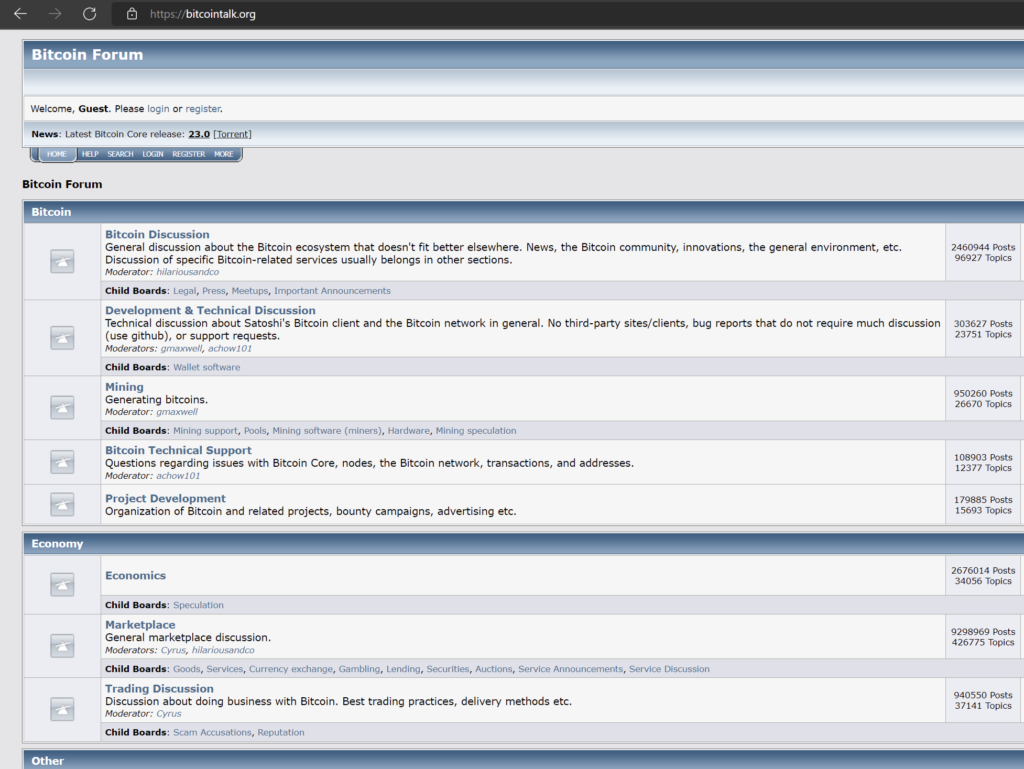
As blockchain technology began to grow, so did crypto communities. At first, it was a small community of enthusiasts who had a few conversations on social media.
Soon enough, crypto began doubling in value and popularity. People started using online platforms more to connect with shared interests.
More people now appreciate the importance of community management. Blockchain companies must invest in moderators skilled in these platforms:
Facebook and Twitter
Social media platforms made it possible for fans to interact and become friends. A simple tweet or comment can start an interesting discussion.
Reddit became the place where anyone can talk about all things crypto. As of 2022, the subreddit r/CryptoCurrency has over 5.3 million members.
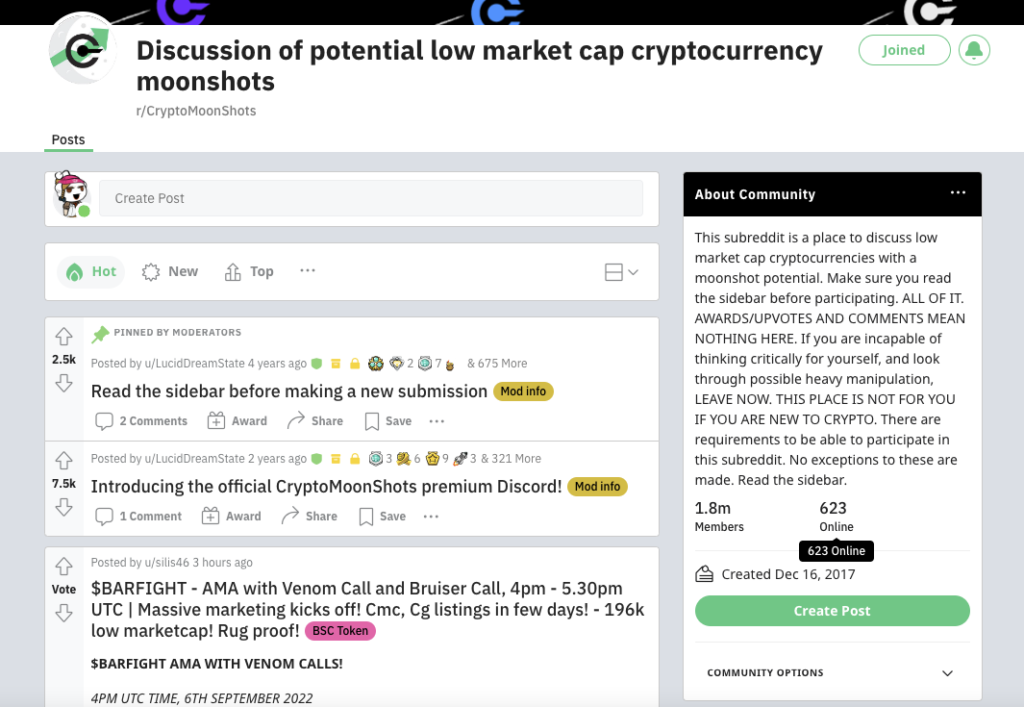
Telegram
Many crypto communities then turned to Telegram as their central communication platform. Here are a few reasons why:
• Cross-platform availability
• Groups can host up to 10,000 members
• Pinned messages allow moderators to highlight announcements and news
• Built-in moderation tools
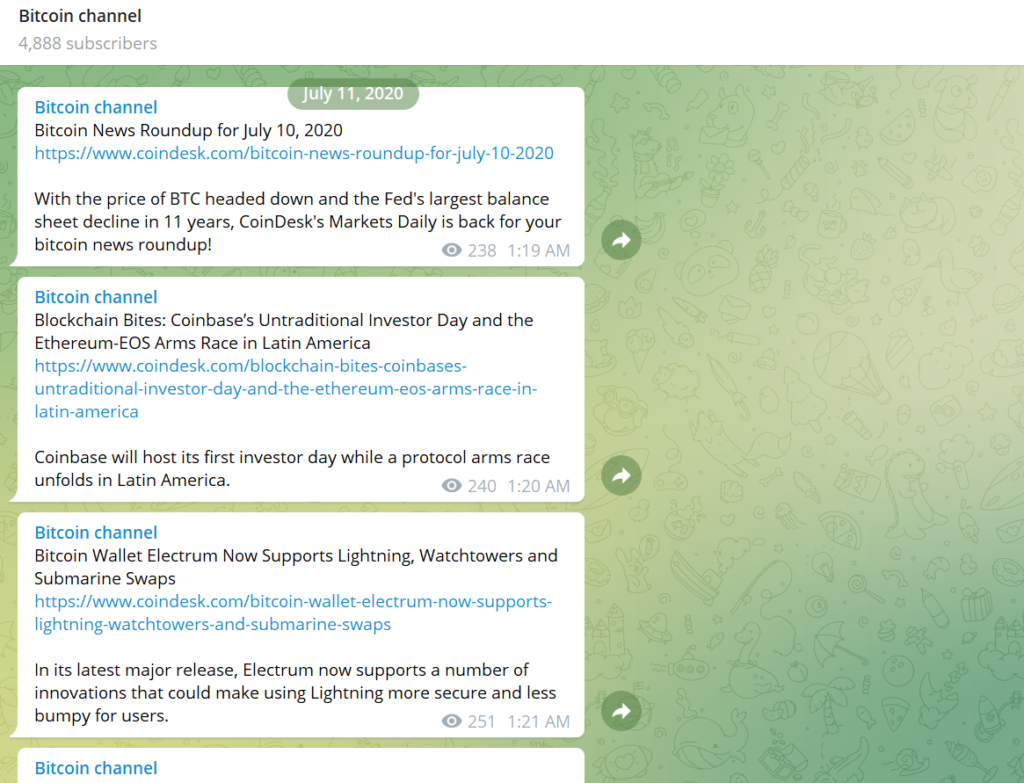
More enthusiasts mean greater demand and need for content
As cryptocurrency rose in popularity, community managers turned to content. Good content educated and attracted new members.
The following content platforms increased in popularity:
Medium
An online publishing platform. Thought leaders post informative articles on crypto or blockchain technology on Medium.
Youtube
You will find many people creating videos explaining blockchain technology and its implications. Companies use short-form videos to make announcements on prizes, giveaways, and more.
Podcasts
Thought leaders host podcast shows to further extend their reach. They even invite crypto influencers to talk about blockchain topics.
An employment-oriented platform. Today, crypto companies flock to LinkedIn to inspire (or hire) professional crypto enthusiasts.
Discord
Discord allowed companies to combine gamification with moderation. Its many features make it a great choice for startups:
• Fast, real-time communication
• Sleek, customizable user interface
• Ability to assign community roles
• Built-in tracking tools
• Useful bots

Steemit
A blockchain-focused blogging site. Users receive crypto rewards for posting, commenting, and upvoting.
Social Media Networks
Thanks to easing government regulations, members are returning to social media. More companies are pushing their engagement on Facebook and Twitter.
Crypto communities cater to people with all sorts of interests. Community moderators must now find ways to spark everyone’s curiosity.
The surge of interest in NFTs shows that artists and personalities want to be part of the space. One can only expect community management to become even more diversified.
It won’t be long until we see blockchain in mainstream media.
Members show more interest in projects that are non-financial in nature. They want to enjoy crypto and blockchain technology for aesthetic and personal enjoyment.
Today, it is not enough for companies to run communities. These communities must be interactive and engaging enough to attract investors.
The crypto community has changed since the creation of Bitcoin in 2009. Investors and enthusiasts communicate in new ways today. Only time can tell what comes next!
Community has evolved rapidly, to keep up to date with its pace and understand it comprehensively requires time and knowledge. Working with an agency can help you save time. Contact us today!
The Web3 ecosystem is a very expansive and growing one. The launch of new projects shows how innovators are hard at work to bring targeted changes. The growing technological sophistication has made scammers more intense in rampaging the ecosystem.
Web3 projects need to protect users against exploits as a fundamental responsibility. This responsibility is heightened when the Web3 project is new and trying to gain trust. Community members can protect themselves from exploitation by becoming aware of common scams
This article sheds insight into the top 5 scams in the Web3 ecosystem of interest to new protocols. These include;
Quite a lot of scams are now carried out through simple impersonation attempts.

Thanks to social media, projects can now maintain an online identity. With this, they can connect with their community.
There are weaknesses in the verification systems of these social media platforms. These are often exploited by criminals. They can clone the real project’s account and share important information through it. This often leads to a loss of funds.
This is a very common scam and projects should be on guard. When discovered, take down these cloned accounts before they cause damage.
Web3 is now paraded as a decentralized alternative to today’s internet.
It generally encompasses different aspects, but finance is the primary.
Web3 protocols that offer a financial product must always reach out to their target users. Scammers can hijack such intended messages. Most times, they do it using a phishing attack.
Phishing attacks come in the form of an exact email, message, or ad. These messages often look like the ones from the project but lead to a cloned website. Web3 users click on Phishing links and get their seed phrases or other sensitive data exposed.
This exposed data is usually an avenue through which hackers can use to drain their funds.
Knowing how common these scams are, team members must always sensitize their community. This way, everyone can stay on guard.
Scammers may target a good project and produce fake NFTs as part of their scheme.

Blockchain is an open-source technology. As such, anyone can mint the copycat of digital artwork as NFTs.
It is also possible that these NFTs get listed on marketplaces. On these platforms, they get sold to unsuspecting buyers. Acquiring such digital collectibles is risky. Attempting to verify it can show it does not belong to the original collection.
OpenSea, Rarible, and others are working hard to stop the listing of these fake NFTs. Projects can also be proactive to warn their users of such schemes.
Giveaway scams
When browsing crypto news on Twitter, you can always spot giveaways like below. A hacker will impersonate a prominent public figure or company and claim to be giving away crypto.

In most cases, the link goes to a fake “double your money” giveaway where you have to send your tokens. Supposedly, the suspicious “Vitalik Butterin” promise to give you more than (i.e., twice the amount) what you send.
And yes, you won’t get anything back.
Many accounts are even verified, making these giveaway scams even worse.
Also, there are a few things to take note of:
If you are a Web3 social media manager, we advise you to keep your community wary of these scams.
If you think that these scammers won’t target your newly created tokens, then you are wrong.
Scammers can even replicate (copy) your website, community groups, and similarly named tokens.
Customer Support Scam
Customer support scams, or CSS, are deliberate types of scams where the scammer will deliberately contact people to help them with Web3 problems.

In most cases, the scammers will ask the victims their “seed phrases”, which are the keys to the users’ wallet addresses. Once they get the seed phrases, consider your tokens lost forever.
One more thing: The average users aren’t the only target for this kind of scam. It can also happen to the developers, and that may include you.
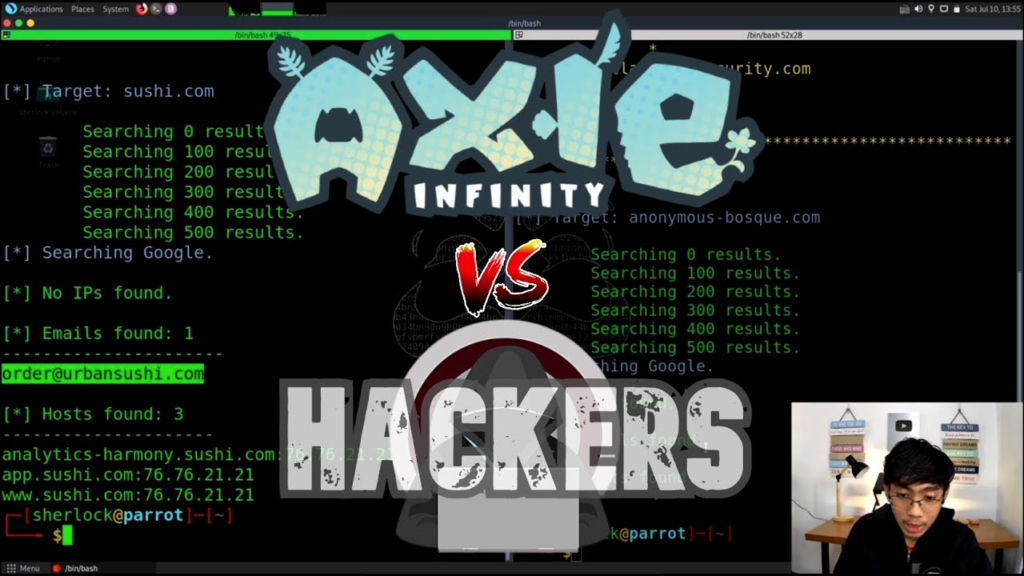
Have you ever heard of Axie Infinity? The infamous $600 million hack happened because of a scam similar to this, except the developer somehow “disclosed” their personal information to the scammers.
We mentioned this above, and yes, scammers can create IDOs that copy other token names, including yours. These are the signs to spot fake IDO/ICO:
• Fake team members: Scammers will use stock images, fake testimonies, and celebrities’ quotes to make the IDO look “legitimate.”
• Missing or poorly-made whitepapers: Some fraudulent companies even managed to create convincing whitepapers (e.g., PlexCoin).
• Hidden token sale : Scam IDOs will hide their token sale progress. Sadly, this is not easy to spot.
Project auditing sometimes requires thorough knowledge and experience. If you want to avoid getting scammed under any circumstances, working with an agency like us is another good option.
The Metaverse is the name for the virtual world that exists between our real world and cyberspace. People can talk to each other and interact with digital objects in a 3D environment. And it’s no longer just for gamers.
Some of the world’s biggest brands are starting to show up in the Metaverse. Find out why by reading on.
Metaverse appeals to brands. It’s a chance to build a more immersive, engaging customer experience than in traditional marketing.
In the metaverse, marketers may manage every part of the client experience. From avatar appearance to the environment they’re in. Companies that carefully build their public image value this level of control.
Furthermore, businesses see the metaverse as a tool to reach new clients who wouldn’t otherwise be interested. By designing relatable avatars and presenting them in fascinating settings, marketers attempt to increase consumers’ interest in their products.
Finally, there’s also an element of exclusivity that comes with being one of the first brands to establish a presence in the metaverse. Just as with any new frontier, there are a lot of opportunities for early adopters to make a name for themselves before everyone else jumps on board.
Digital Products
The metaverse helps firms market and sell their products in new ways. In the real world, businesses can only approach clients face-to-face; in the Metaverse, they can reach anyone, anywhere.
Moreover, businesses can create digital versions of their products and offer them for sale in the metaverse. This means that you could sell a digital product that can be used in the real world (like an e-book) or an entirely virtual product (like an avatar outfit).
The possibilities are endless, and businesses are just beginning to scratch the surface of what’s possible. For example, cosmetics company L’Oreal has already created an avatar makeover tool that allows users to try on different makeup looks in order to find their perfect shade.
Marketing and advertising campaigns
Another way businesses can benefit from the metaverse is by using it as a platform for marketing and advertising campaigns. In the physical world, these campaigns are often expensive and difficult to measure. In the Metaverse, they can be far more cost-effective and easier to track.
For example, a business could create an immersive advertising campaign that allows users to experience their products in a virtual environment.
Better UX
The user experience is another area where businesses can benefit from the metaverse. In contrast to traditional websites, which can often be confusing and difficult to navigate, avatars in the metaverse can guide users through your product or service in a much more intuitive way.
This is especially true when combined with VR technology. For example, imagine being able to try on clothes before you buy them; or being able to test drive a car before you make your purchase. The possibilities are truly endless.
Gucci
Gucci Metaverse brings its brand to life by providing a virtual place customers may explore. Gucci metaverse creates an immersive experience by letting users engage with the area and each other. Gucci Metaverse shows how the metaverse can help firms stand out in a crowded market.
![]()
Adidas
Adidas’ new virtual store lets buyers try on shoes and clothes. The store gives Adidas a position in the developing metaverse economy. Customers can use avatar models to test on clothes and shoes. Customers can build their own distinctive looks with the store’s personalization choices.
Adidas and Bored Ape Yacht Club have teamed up to create a metaverse partnership that will change the landscape of branding and marketing. The metaverse is a virtual world where people can interact with each other and with digital content in a more immersive way. This partnership will allow Adidas to create its own virtual world within the metaverse, where users can interact with their products and brand in a more interactive and engaging way.
Conclusion
As you can see, there are countless reasons why businesses should be paying attention to the metaverse. From selling digital products to marketing and advertising campaigns, there are many ways in which businesses can benefit from this rapidly emerging technology.
So whether you’re a business owner or simply someone who’s curious about what’s next for the internet, keep your eye on the metaverse—it’s sure to have a big impact on our lives in the years to come.
Start a blockchain project with crypto influencer marketing.
Despite its high success rate, many cryptocurrency project owners don’t know how to work with top influencers.
Keep reading to learn the best 5 influencer marketing tips.
Find your target audience. De-fi protocols have a different audience than game-fi. Knowing your audience helps you find the best campaign influencers.
Use 3 questions to find your audience:
• In what sector is your audience active? (sci-fi, game-fi, NFTs)
• In what region is your audience active? (Asia, LA, Europe)
• What draws your audience? (News, memes, etc.)
These questions help you target your audience with the right influencers.
Before planning influencer marketing, consider the type of campaign you want to run. Your campaign’s goals and channels will determine your strategy.
Influencer campaigns include AMAs, contests, freebies, guest writing, gifting, and sponsored content.
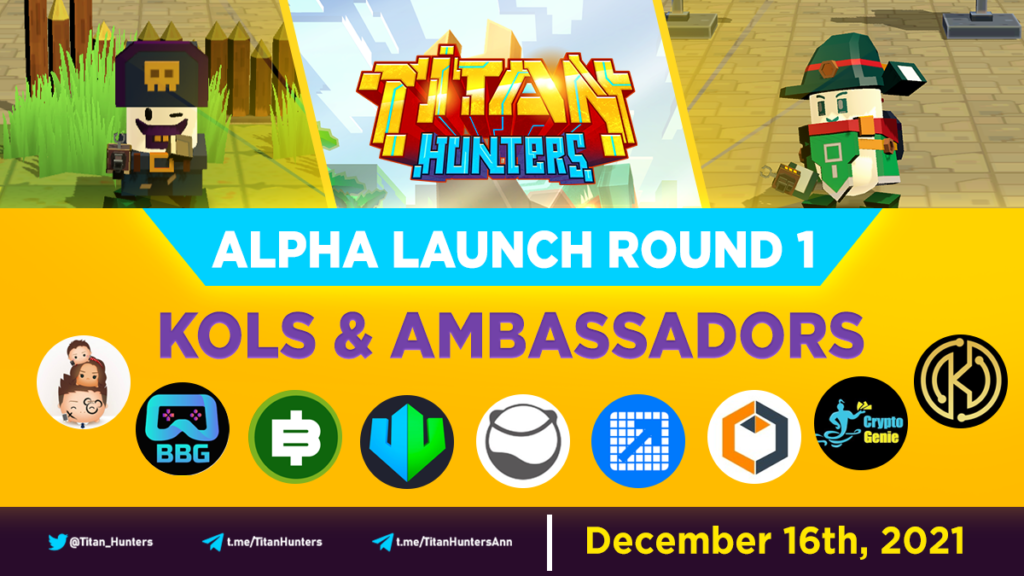
Influencers offer different types of support. Before you onboard a KOL or influencer, ensure it is the right fit for the campaign you want to run.
When choosing an influencer, consider:
• Engagement: Influencers with high engagement are the “real” influencers. Don’t look at the following count only.
• Content quality: High-quality influencers produce high-quality content. They have no credibility if all they do is share other people’s stuff.
• Brand match: The influencers you work with should complement your company’s image, tone, and style.

Put authenticity first. The consumer is more inclined to pay attention to authentic and genuine material. Never allow influencers to promote your sponsored content if they have no connection to your brand.
Remember that in Web3 environment, you easily get scammed by influencer fraud. In this case, an agency can help you verify influencers’ credibility and connect you with the best suited ones.
You must check your campaign’s goals to find the most effective crypto influencers.
Some campaigns are more effective on Twitter, like shoutouts and giveaways. Video reviews are more effective on Youtube. Campaigns like quizzes and AMAs work better on Telegram and Discord.
Your campaign determines the right platform. And the platform determines the best-suited influencer for your campaign.
Use KPIs to determine the results of the campaign. Track this through engagement, sign-ups, viewers, etc.
This also helps you to agree on budgets to onboard the KOL.
Future campaigns can benefit from past ones. If your connection with the influencer generates enough leads, consider another campaign.
Conclusion
In your crypto ventures, never underestimate the importance of influencers. They can elevate your entire campaign to the next level as the blockchain industry relies on brand reputation.
Bonus: 15 Crypto market influencers
According to NY Times, about 100 cryptocurrencies are created per day. In a competitive crypto market, marketing is the most unique way to attract investors and builders to your ecosystem.
Of course, projects shouldn’t forget about utility, which is still the most important aspect of any coin’s market price. But utility alone won’t make your project successful. You still need to wrap it into a consumer-attractive package and explain the point of your project. That’s something called Positioning Strategy.
Read below to learn about different ways of positioning your project.
Analyze the competition:
Always analyze your competitors: other people will always try to win the potential ecosystem members. You should always know what tools they’re using, and how they’re attracting new followers. Learn, adapt, mimic.
Find a niche
Search for an empty/underdeveloped niche in the industry. The crypto market is relatively young, so there are still a lot of unfilled gaps in the services. For example, If your ecosystem doesn’t have a quality blockchain scanner, then build it!
Find the latest trends
You should also keep up with the latest trends in the industry. NFT boom? Launch a collection. High demand for Metaverse projects? Build your own, or collaborate with an already existing one.
This strategy doesn’t require a long and complicated research: just open Twitter, and look at the top projects in your niche. Repeat that periodically. Done, now you know your market.
And if you know what’s happening in the market, you’re able to use it to your advantage.
In simple terms, USP and UVP are the reasons why someone should buy your product. These terms aren’t crypto-exclusive, and are used widely in modern e-marketing.
Nobody likes to research. It’s hard, it’s boring, it’s tedious. So no user will really try to understand why he should join your project by himself: it’s your task as a builder. The company always tells its USP and UVP to the customer, not the other way around.
How to explain your USPs
Make sure that your USP/UVP are easy to understand. To effectively communicate with your customers, the value that you bring should be intuitive. “Cross chain NFT integration”, rather than “we invented a new technology that makes NFTs cross chain compatible. ”. Users always need to see the final benefit they’re getting:
• Feature – Cross chain NFTs
• Advantage – use NFTs to play different types of games on different chains
• Benefit – no more buying new NFTs for every single game -> save money
Include these points into your marketing campaigns.

USP/UVP are also great for finding your target audience. When you figure out what is the value that your project brings to the community, you only need to figure out who needs it.
You should always know what you are selling, and how it will make your customers’ lives easier. And once you know it, emphasize this value as much as you can.
Modern marketing is much more than just “my product is cool, buy it”. To be competitive in the crypto market, you should understand how storytelling works, and when you need it.
Everyone loves a good story, so give your customers one. In your marketing campaigns, you should describe to them their own life, and how it’ll change after buying your product.
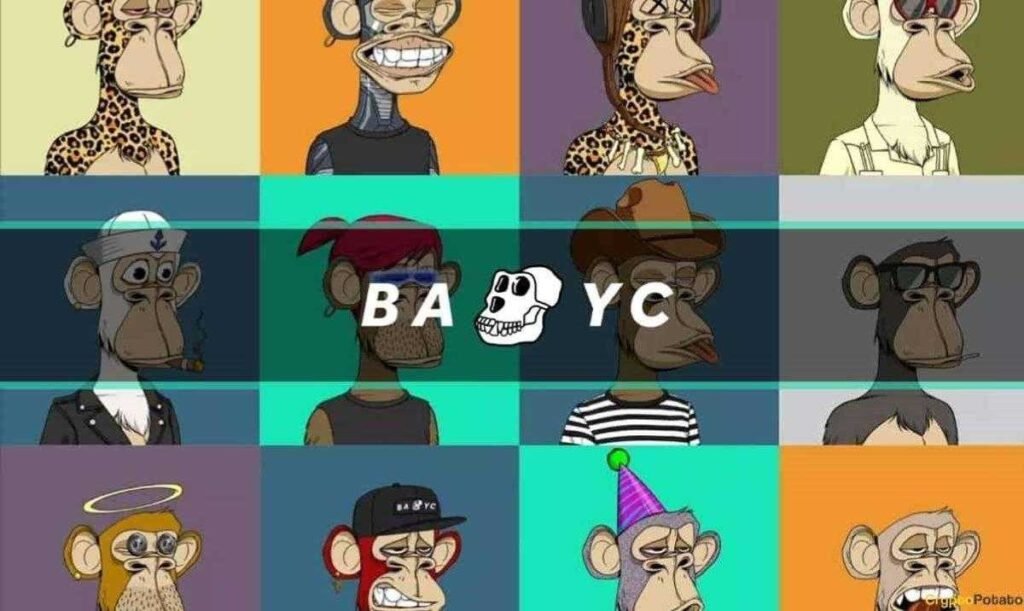
What’s the story?
People don’t buy things because they need it, but because they were told that after buying something they will become a better person: richer, happier, more good-looking. So if you understand storytelling, you understand how to sell.
It might be problematic, since not everyone is a quality writer. And if you’re not, then don’t worry: just hire a professional.
What makes a good story?
• Emotion
• Logic
• Credibility
Learn more about Storytelling in Web3.
In different communities, there’s different people
Due to the cultural traits and economic circumstances, people in local communities have the same behavioral traits.
• They want the same services
• Ready to pay the same amount of money
• Consume the same content
Adapting
By knowing these communities, you can significantly improve your market positioning: if you know who’s your target audience, then you can alter your product in order for it to fit better.
For example: Game-Fi is big in Asia, so it makes more sense to focus on serving the Asian community if you have a gaming project.
Learn what advertisement type works better in a specific region, and use it more often. Adapt to the environment that you’re focused on.
Analyzing the community
Learn more about your customers in the specific region through social media analytics and interactive polls. When you have enough data, you can form an image of your customer.
Follow these 4 Positioning Strategies, and you’ll be able to win even such a saturated market as Web3.
Do all these things but still not sure if your project achieves product-market fit? Look for consultancy. With years of skin-in-the-game experience, we know the market, the community insights, we will support you to find the right direction.
Contact us
It’s true that 95% of projects fail because the founders don’t know how to connect with their audience.
Use these three pillars to help you tell the story of your project and get the community more involved.
Emotion
It’s important to try to change people’s minds by appealing to their emotions. If people can relate to you, they will be more willing to hear what you have to say.
When you use this type of persuasion, you need to make your audience feel something to get them to act. Even on a “small scale,” people act out of emotions like happiness, sadness, nostalgia, anger, and so on.
Use simple, meaningful language. A tone of voice that shows emotion (whether spoken or written). Emotional analogies or stories can all help you develop a style of storytelling that inspires. Visuals, like UX/UI design and the portraying of characters, are important to make the users feel a way they can relate to.

For example, Derace gives its users a strong sense of belonging by telling them stories like being in a jockey club or owning their own horses. This is an exclusive and one-of-a-kind experience. Especially for people who want these things both mentally and in real life.
Think about Uniswap. Uniswap is a DEX platform. It focuses on the problems that clients have, such as dealing with third parties and privacy issues. Consumers feel safer when they buy or sell something on DEXes.
Logic
The next important step is to use logic and reason to win over your audience. Support your claims in a logical way by:
• using facts
• recorded evidence
• logical arguments
• stories
• historical data
• literal comparisons
Before you use this method of persuasion, make sure you have facts, stories, and information on hand.
Present this logic to your audience in a way that makes sense to them.
The goal to use logic in your storytelling is to make the users want to be a part of your community and project. You want to convert the community into users and investors.
The best time to use this strategy is during an IDO/ICO/INO. It is important to persuade your community with logic to become an active investor during this time.
Credibility
It’s important to gain credibility within your community.
Use these 3 tactics to enhance your storytelling by building trust and credibility.
Influencers/KOLs
Influencers and KOLs play a massive role in Web3. Many projects set aside a budget to onboard influencers. KOLs have credibility in the space and if they vouch for your project, it builds trust in the community.
Partnerships/Advisors
Partnering up with the right parties boosts your credibility. Derace partnered with Michael Owen. Owen is a big name in the horsing industry and many know him from his football successes. Having a person like him vouch for the project gains immense trust.

Earned media
Earned media is any free publication about your brand that’s generated through organic ways. It’s released by third parties. It’s one of the best forms of publicity a project can get and can boost its reputation.
Earned media varies. It includes online article mentions, third-party write-ups, unaffiliated site links, and video reviews. Traditional media, such as magazine or newspaper articles and word of mouth, also feature earned media.
Conclusion
Storytelling has been used to teach people for a long time. Ever since we learned how to talk, stories have been a way for us to share what we know. There are good ways to tell a story and bad ways to tell a story. Just as there are good and bad ways to tell the same story. Knowing the difference could make ALL the difference.
We hope that this post has taught you the basics of how to come up with a story for your brand. It’s still difficult to come up with a story for your project, hiring an agency who has experience in this space is a better idea. Contact us today!
In this article, we prepared the best tips for you to start managing your crypto/NFT project’s social media. Pay attention to the five categories below, and you should become an expert at Web3 marketing in no time.
If your goal is to maximize leads and attract potential investors, then expanding influences on multiple social media channels is a must.

However, if you are new to Web3 marketing or have limited time, a Twitter account and a Telegram channel are good starting points. Once you are familiar with the workflow, expanding to other channels should be easy.
Also, note that each channel can serve different purposes:
• Twitter/Facebook/Telegram: For general announcements.
• Telegram/Discord/Reddit: Community building.
• Medium/Website/YouTube: Education.
Community building can come in various activities, from mundane tasks like chatting with your users to creating organized events like AMAs and competitions. It is time-consuming, but it’s absolutely vital for the project’s online presence.
If you have no idea how to start, then sharing updates on project development is a safe conversation starter.

Also, pay attention to the community’s mood. People will become less enthusiastic if there aren’t enough updates.
Check out Twitter Spaces if you want a more serious approach to community building. They’re excellent at generating real, meaningful conversations and real-time engagement. You will find an example below:
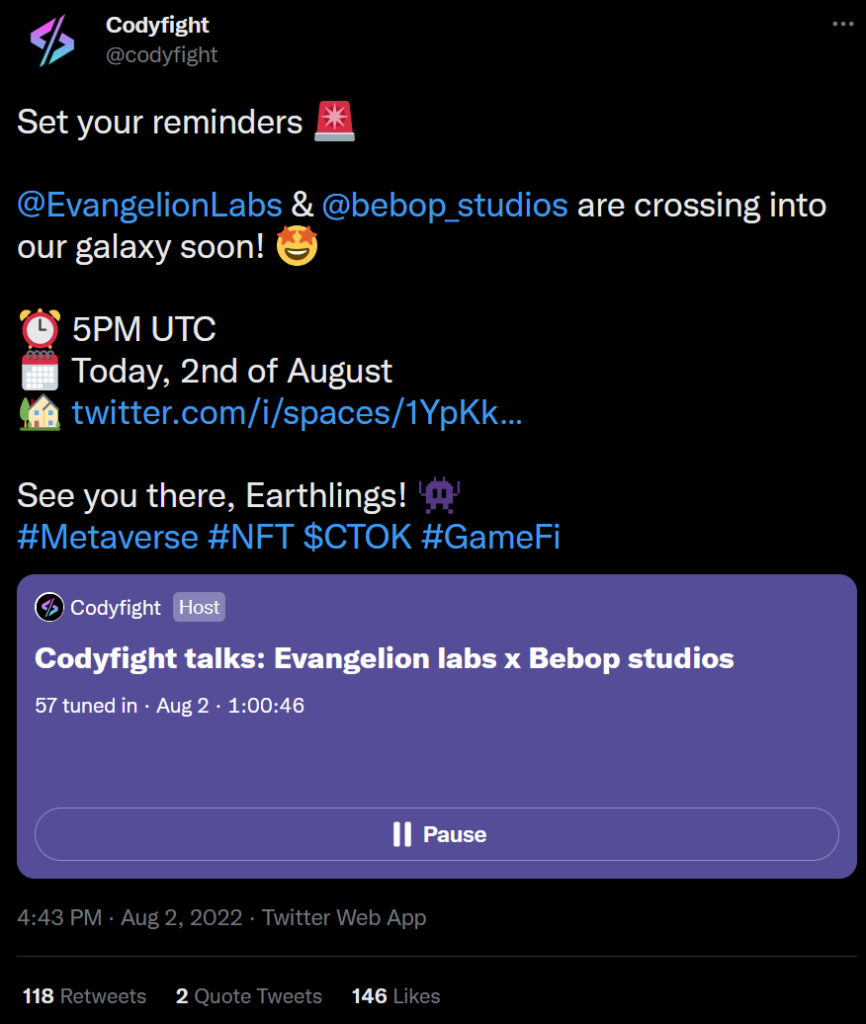
Once your community grows large enough (i.e., 5k+ followers), hiring a social media manager might be a good idea.
Influencer marketing, or KOL marketing, is one of the most powerful tools to boost your project’s followers quickly. It involves collaborating with an online influencer, KOL, or even celebrity to market the product.
Here are a few tips when looking for a Web3 influencer:
• Look for influencers with a small number of subscribers/followers (under 10k) if your budget is limited.
• Each crypto influencer may specialize in a field. Check carefully if their channel is about Web3, NFT, DeFi, GameFi, or trading.
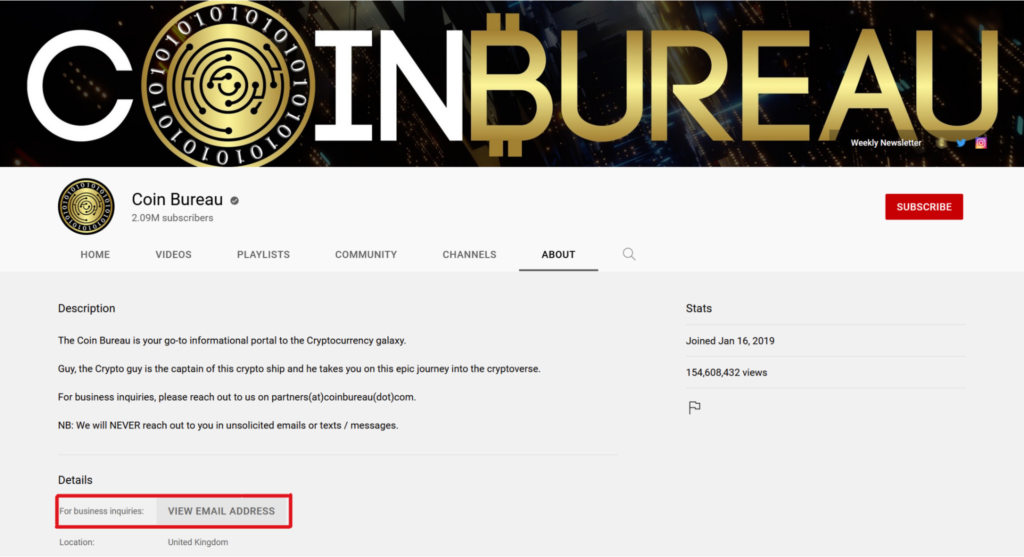
• It never hurts to send your proposal to mid-tier or higher-level influencers. If your pitch deck catches their interest, then your chance of getting a partnership increases significantly.
• You can become an influencer by yourself! In fact, many Web3 projects have dedicated social media plugs for their founders/CEOs (e.g., Binance and @cz_binance).
Storytelling makes all the difference in capturing people’s interest, including influencers. Learn more by continuing reading!
People love a good story. It doesn’t matter if you are building an NFT, Web3, DeFi, or GameFi project. Everything should have a start, a cause of action, and a solution, which is whatever your project is about.
For instance, Bitcoin was famous for being the first cryptocurrency and its technical fundamentals. Some even contributed to the mysterious disappearance of its inventor, Satoshi Nakamoto, to make up for Bitcoin’s reputation.
Once you find your narrative, start building the content around it: Pitch deck, whitepaper, social posts, articles, social media graphics, infographics, etc.
A good pitch deck makes all the difference!
If seeking business partners (or Web3 influencers, as mentioned above) is your priority, then you should have an excellent pitch deck:
• An engaging story of how your project comes about.
• A summary of what the project does.
• A compelling design that can speak for itself.
For reference, take a look at this Web3 marketing firm’s pitch deck
The first tip: Make sure your design complements the theme of your project.
Your website, graphic banners, infographics, videos… should follow a brand guideline.
Take Basketballverse, for example. This is a metaverse project for a virtual basketball eSport game. Below you can find the similarities in the designs in various formats.
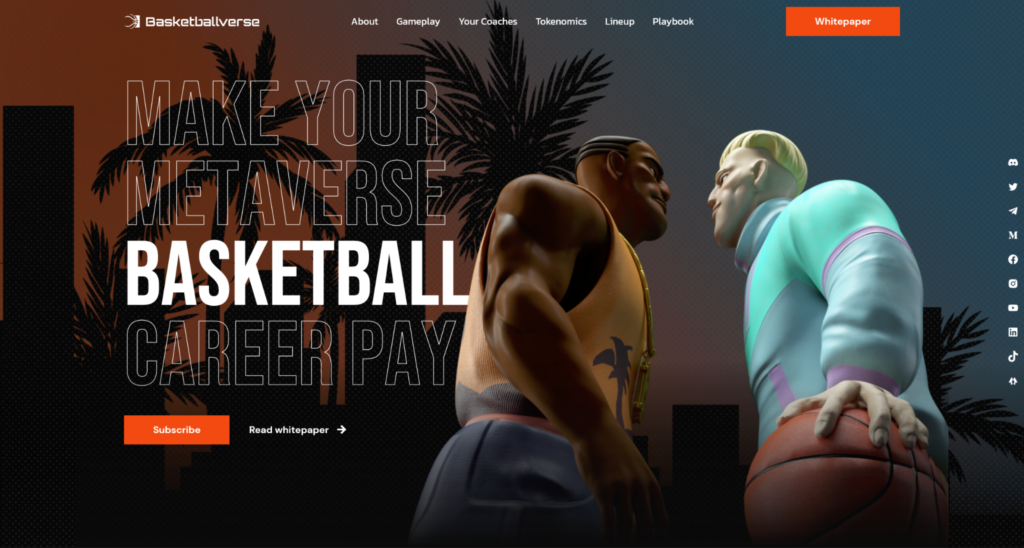


You can also create a mascot (usually based on an animal) so people can easily associate your project with. Works even better if the project is a sophisticated Web3 app (e.g., blockchain protocol, trading platform, decentralized banks, digital wallets, …)
For example, whenever we think about the crypto wallet MetaMask, a polygonal fox head comes into our minds. Or a 3D cutesy bunny when it comes to the DeFi trading platform PancakeSwap.
Why do brand guidelines and mascots matter? Together, they can create patterns – visual cues that can create a sense of immersion for the viewers.
Combined with proper storytelling, you should get thousands of followers with ease.
Web3 Marketing changes day by day. There is no knowing what trends will be coming next. That’s why you have to go out there and put your Web3 marketing skills to the test.
You can use the tips we listed above or make your own strategies. Still clueless? We also offer a consultation service at Social Staircase.
Social media platforms have become a big part of Web3 community creation. Choosing a platform correctly for a Crypto and NFT project is vital for the project’s success.
There are many ways to boost Web3 community management and engagement. The best way is through social media.
Web3 has changed the game. Now, influencers create content and have complete freedom to manage and monetize it. People are building projects and exploring their various branches, like NFT, Game-Fi, and De-Fi.
It’s important to note that marketing is the supporting backbone of all these activities. Community building is necessary to the success of any web3 project. It helps sustain projects, ideas, and events.
The best social media platforms here will help you build a solid community.
Here are the social media we will be adding to the list of top social media platforms to use for Web3:
• Discord
• Telegram
• Tiktok

Let’s take a closer look at setting up the strategies to gain followers and activities there.
Twitter is one of the most used social media in the web3 space. It allows community members to communicate through likes, retweets, and tweets. For setting up an account, you need to:
Twitter has a “Space” feature that you can use to create a social media community. It’s perfect for your project development and engagement. It improves community building, networking, and awareness. Use Twitter to build a strong presence for your Web3 projects. It has high user engagement, which makes it an excellent platform for promoting NFTs.

Use Twitter to build a strong presence for your Web3 projects. It has a high level of user engagement, making it an excellent platform for promoting NFTs.
Discord should be one of your first choices. It’s one of your primary marketing channels that will ensure the success of your Web3 project. It is the most effective communication and the essential medium for the Community.
Here you can learn how to set up a Discord server!
Discord helps manage the community. It allows members to get to know each other based on their skills. It is the community’s cornerstone. You can create separate channels for:
• General issues
• Announcements
• Development and private talks
• AMAs
These channels are useful to join if you want to get detailed information about any project side.

It’s essential to keep your social media access secure. Many project hacks are happening on Discord. You can use the MEE6 bot for your Discord channel. It will provide your Community with periodic security tips you can schedule.
Telegram is especially popular with encrypted audiences. It allows your Web3 Community to communicate in real-time via scrollable text chat. With Telegram, you can create polls and games to engage your community.
Telegram can host a larger community than other messaging platforms like WhatsApp. You’ll notice that almost all projects have Telegram communication channels.
Instagram is another great platform. You can use it as a means to connect with your younger audience. It is because it is popular among teenagers and young adults. Use original and engaging videos & pics to build your Community. Meanwhile, you can promote your Web3 project on Instagram. Also, use hashtags and frequently post to ensure that most people see your content.

Setting up an Instagram account is easy:
Choosing TikTok for Web3 marketing is excellent now. This social media used to be where young teenagers watched the video. Now it is a full-grown marketing tool with great analytical opportunities. Let’s check how to start on TikTok:
You need to subscribe to similar accounts to get the highest outreach. Like and share crypto-related content to be among the recommended accounts. This strategy might help you to get on top of Web3 marketing strategies.
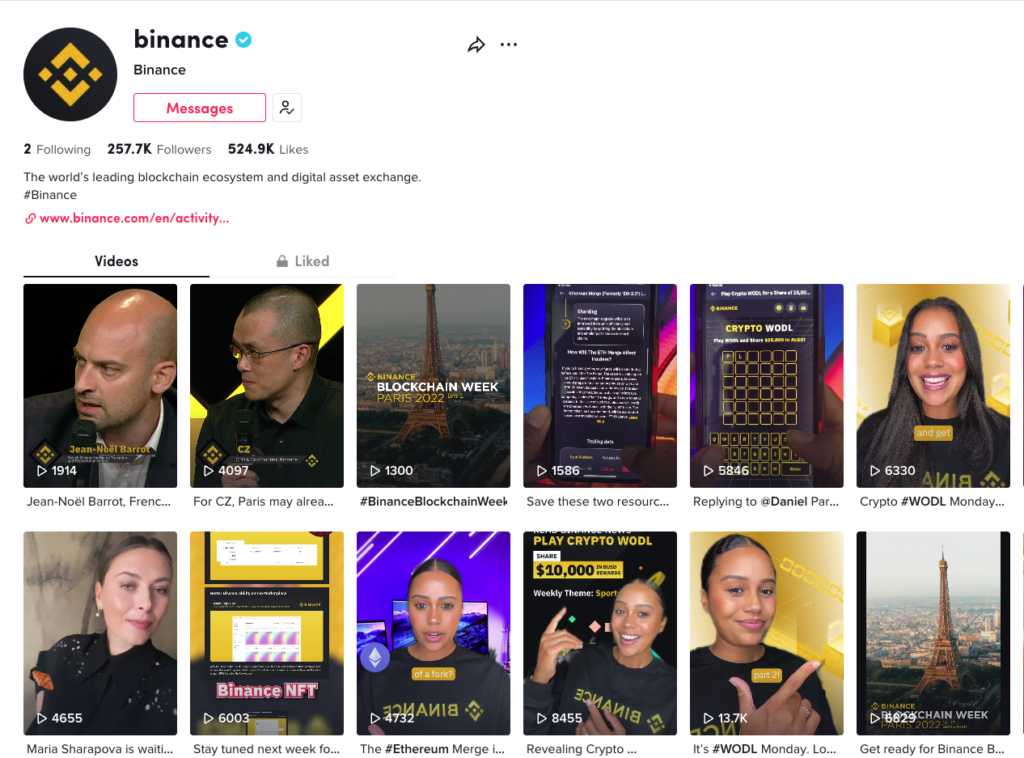
Additionally, you can use all these platforms to conduct the events. Some of them are crucial for Web3 and NFT marketing: and
• You can conduct AMA sessions;
• Q&A sessions with the audience;
• Take interviews for the company accounts.
Remember that the list of activities is endless. You may feel confused when setting up everything from scratch, work with us to build a strong foundation for the success of your projects.